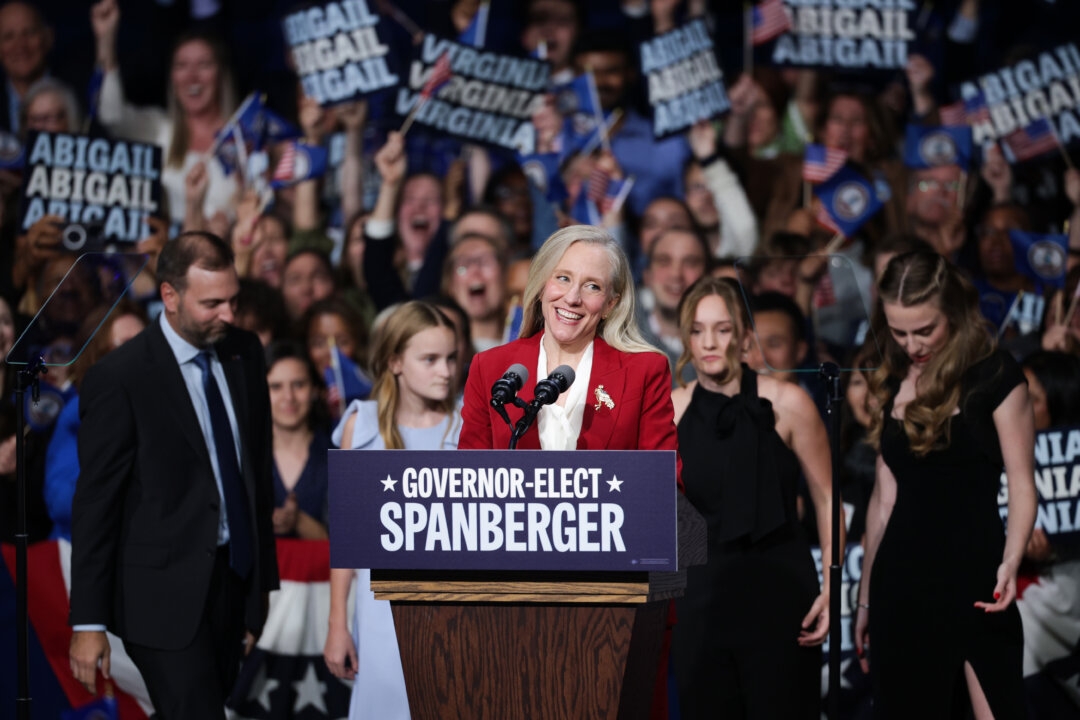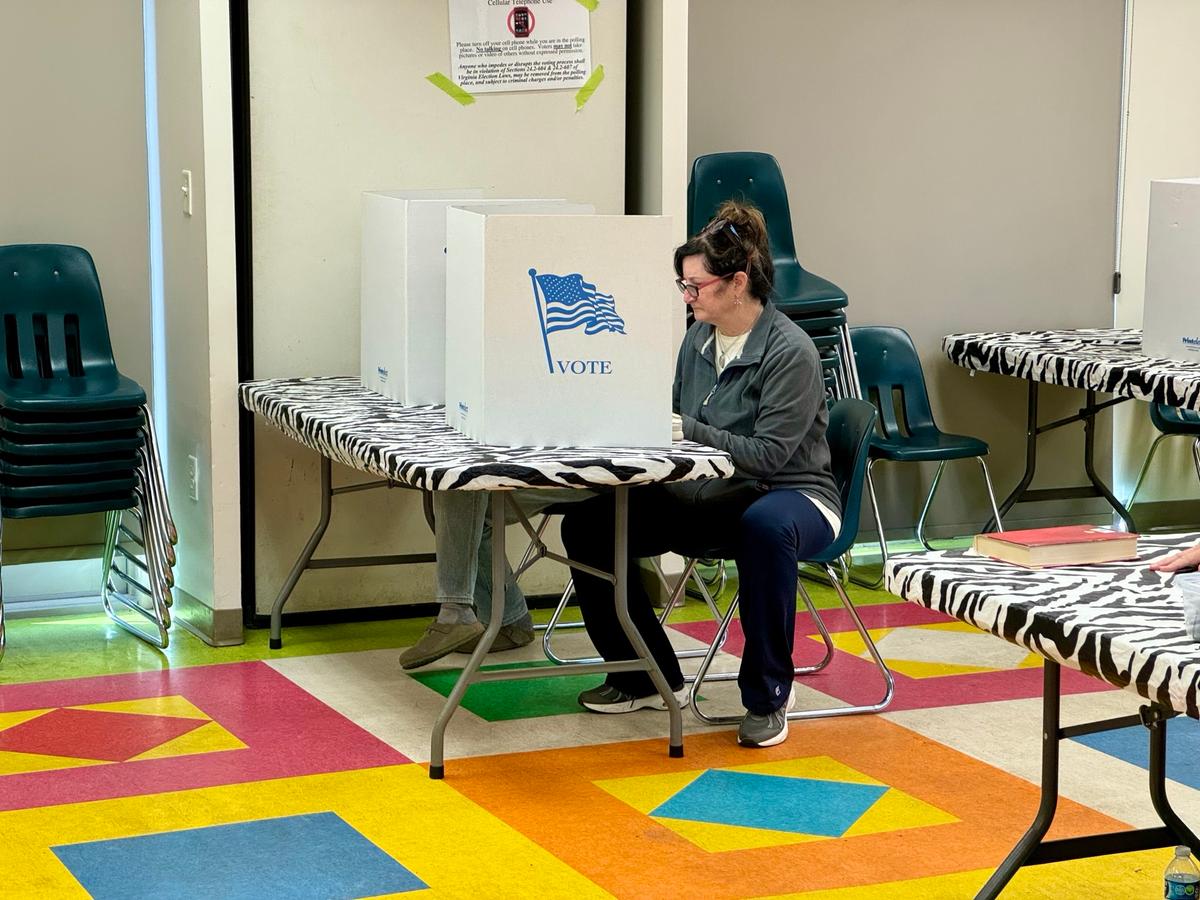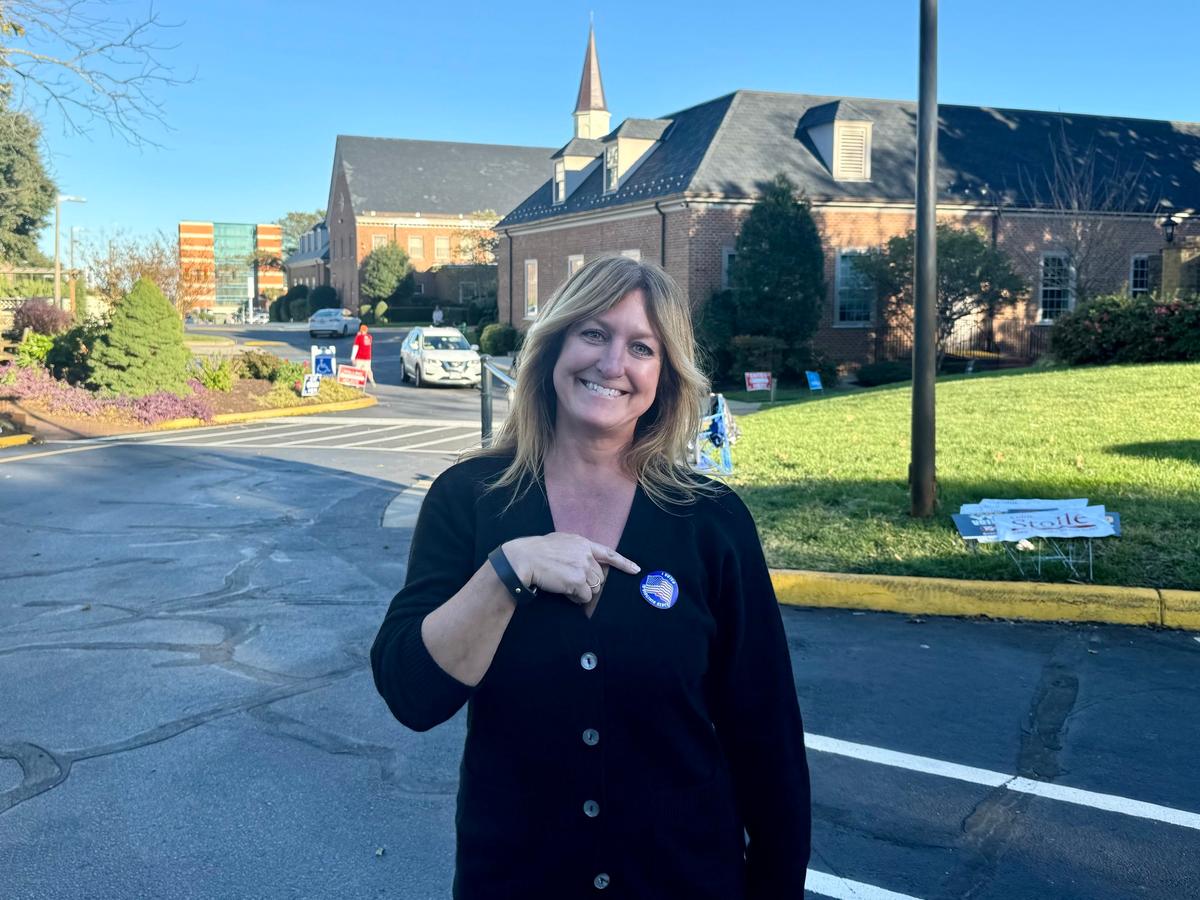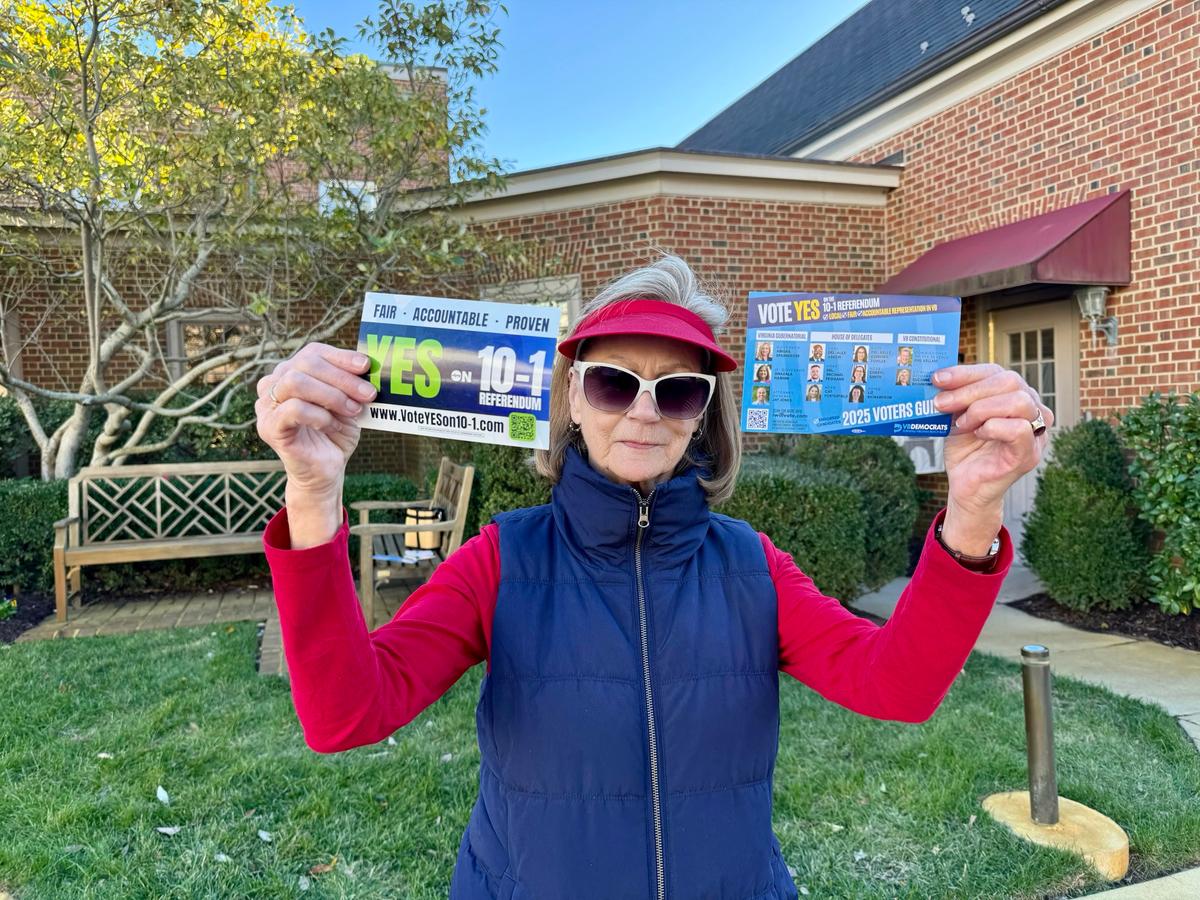Abigail Spanberger Becomes Virginia’s First Female Governor in Historic Win
VIRGINIA BEACH, Va. — Former Congresswoman Abigail Spanberger (D-Va.) was elected Virginia’s 75th governor on November 4, defeating Lt. Gov. Winsome Earle-Sears (R) and making history as the first woman to hold the state’s highest office in more than 400 years.
“Just a few minutes ago, Adam told our daughters, ‘Your mom’s going to be the governor of Virginia’—and I can guarantee those words have never been spoken in Virginia before,” Spanberger said during her victory speech, referring to her husband.

According to the Associated Press, Spanberger captured 54% of the vote compared to Earle-Sears’ 45%. The AP officially called the race at 7:59 p.m. Alongside the gubernatorial contest, Virginians also voted for lieutenant governor, attorney general, and all House of Delegates seats, though some legislative outcomes remain pending.
Spanberger Outlines Key Priorities
Spanberger will be sworn in on January 17, 2026, as Republican Gov. Glenn Youngkin concludes his term.
In her victory address, she expressed gratitude and outlined her agenda: “From the bottom of my heart, thank you. It is the honor of my lifetime to be elected the 75th governor of Virginia.”
Her stated priorities include:
Reducing healthcare and energy costs.
Removing partisan influence from schools.
Protecting reproductive rights, including access to abortion, contraception, and fertility treatments.
Defending Virginia’s federal workforce, citing recent job losses in Northern Virginia tied to federal layoffs and economic uncertainty.
Northern Virginia, home to the Pentagon, major defense contractors such as Lockheed Martin and Raytheon, and numerous federal agencies, has been particularly affected by recent administrative upheavals, Spanberger noted.

Earle-Sears Concedes
After the results were announced, Earle-Sears conceded the race, emphasizing her respect for the process. “I wanted to wait until every single ballot was counted,” she told supporters. “Victory to the Lord looks different than what we often define as victory.”
She called Spanberger to offer congratulations and left her a voicemail. “If she succeeds, Virginia succeeds,” Earle-Sears said, adding that the campaign had been a valuable learning experience.
A Democratic Win as Expected
Spanberger’s victory was widely anticipated. Polls throughout the campaign consistently showed her with a roughly 10-point lead, according to RealClearPolitics.
In the campaign’s final weeks, Spanberger drew attention by campaigning alongside former President Barack Obama, who praised her on social media: “Abigail Spanberger cares about your freedoms, she will fight for your rights, and she will work every day to make your life a little bit better.”

Economic issues were central to her message. Spanberger emphasized affordability at rallies with Senators Mark Warner and Tim Kaine, noting that Virginians repeatedly raised concerns about cost of living.
Voters echoed this sentiment. Diane Stein, a Virginia Beach resident, supported Spanberger for governor while choosing Republican candidates for other offices. She said she found Earle-Sears “too aggressive.” Volunteer Nancy Brown highlighted concerns about the economy and federal cuts to SNAP benefits, expressing hope that Spanberger would protect reproductive rights.
A Blow to Virginia Republicans
The election represents a significant setback for the Republican Party in Virginia. Just four years ago, Youngkin’s victory marked a GOP resurgence, capturing the governorship and the House of Delegates. His campaign emphasized parental rights in education and opposition to progressive school policies—a message that resonated strongly in suburban areas such as Northern Virginia.

This year, those same regions shifted decisively toward Spanberger. Youngkin, though popular statewide, was ineligible to run for consecutive terms due to Virginia’s constitution, which applies only to the governorship. Other incumbents, like Attorney General Jason Miyares, were eligible for reelection.
Looking Ahead
Spanberger’s historic win signals a renewed period of Democratic leadership in Virginia and highlights evolving political dynamics in the state. Her campaign promises—focusing on affordability, reproductive rights, and stability for federal workers—set high expectations for her administration.
As she prepares to take office, Virginians will be watching closely to see how she delivers on her pledge to “put Virginia first,” navigating a divided electorate while shaping the state’s future.
